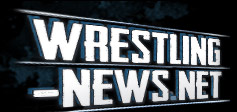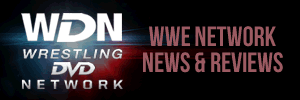In an interview with former WWE, WCW and TNA Wrestling creative team member Vince Russo, Simon Diamond discussed his experience as an agent with TNA Wrestling.
Highlights of the interview are below:
On his experience as an agent for TNA: “When we went to India, Sonjay me and Shark Boy, which is still to this day my favorite foreign trip. We were over there for two weeks, we were treated like kings. I remember Andy Barton calling me and saying ‘you’re in charge over there, make the right decision.’ The first day over there, they came to us and said they wanted to cancel the show because of the rain, it had been raining for like four days. The equipment was already set up, and 15,000 fans were ready to go. It wasn’t a wrestling show, we had just done the deal with ESPN Star, and we were going over there to promote it. It was like a Bollywood show. It was supposed to be Abyss, but something happened, so they sent me. They built this brick wall, they play my music and I burst through it. I was considered a big guy compared to the people of India. Shark Boy came out and we had dancers, they had the parachute like in gym class. Sonjay came out with the flag, he and Shark Boy would thank the fans, then I’d come out and say ‘Simon has a problem.’ Sonjay would dive on me, dance around and off we went. It went a little over an hour, and we’d do it every night. They wanted to shut the show down, but there were 15,000 people out there already, and I said ‘We gotta do it.’ They said it was flooded, and I said we’d figure it out. After the show the guy in charge of ESPN Star came up and said ‘What time are we going over everything tomorrow?’ I asked what he meant and said ‘This is pro wrestling, one take.’ If you can’t do it in one take, get out. I wish a film crew had been there to see me react to that.”
On the agents role in helping lay out a match: “Usually there’s only one spotlight, you can’t have two. When you have two, it causes problems, like with Van Halen. The next thing I’ll do is talk with those guys to get a feel of what they want. I think one of the biggest problems WWE has is they haven’t figured out who they want to highlight, who’s getting over. Once I have that, I have an idea of what I want to do. I don’t want to impose that on the talent because that restricts the creative process, which is the whole thing for the business. I think we’ve pulled a little too much of that out of the wrestler and need to go back to the days of giving them more say, but holding them more responsible about what happens.”
On wrestlers losing creative input: “The biggest thing is television has taken over wrestling, like every sport. The World Series starts at like 8:45, it kills it for kids. Look at the demographics, we’re the only ones watching baseball, the only ones staying up. Wrestling has now become a TV-driven business, because that’s where the money is. Because of that, it’s being produced like a television show, instead of a sporting event. A sporting event is still a sporting event. A wrestling show is now a TV show that needs to be produced and you have to care for the parameters that is calling the shots. For TNA, that will be Pop TV starting January 5. WWE is a publicly traded company. Vince McMahon has a direct order to make sure stockholders are happy. Stockholders don’t care about five star matches, they don’t care about the internet darling, they care about getting that printout that says their share is $16. That’s all they care about. You can’t have a moment of dead air time, because air time is so expensive.”
On the conversation that goes on between the agent and the wrestlers: “‘Here’s what we want, what do you all have in mind?’ It’s basically my job to filter these ideas. Kurt always has ideas. The top guys always have ideas. The mid card guys are more like ‘can you help us?’ They don’t want to be aggressive and seem like they’re stepping on toes. I’ll filter ideas, I’ll make suggestions, and you funnel everything into a final process. I try not to impose too much and say ‘this is what we’re doing’ unless I know it’s what needs to be done. At the end of the day, the wrestler is looking out for himself. You have to.”
On what tactics he uses as an agent to be successful: “My job is to protect the vision of the company. To do what’s best for business, and make sure it’s carried out. I have little tricks. Very rarely have I had to say ‘this is what we’re doing, if you don’t want to do it, I’ll go to the higher ups and we’ll get someone else.’ I think I’ve had to say that maybe three times.”
On handling wrestlers who are trying to just get themselves over: “It’s like ‘can I talk to you for a second?’ Go over to the side and say ‘I get it, I was there. It sucks when it’s not about you. It’s not about you today’ We gotta do this and do it to the best of our ability. Van Halen had ‘Really Got Me’ and made it a great song.”
On wrestlers one-upping each other: “There’s a gene that every performer has. It’s called one-upsmanship. I haven’t wrestled since that last ECW PPV I did, and the only reason I did was because you and Dreamer asked me to. So I consider myself done. Even today, doing little things, when I feel that the eyes are upon me, the green light comes on and I kick it into overdrive, just in every day life, being a father or just whatever. You can never get rid of that gene, ever. That’s the thing with wrestlers. It’s a natural reaction when they’re thrust into the spotlight and turn it on. If you had Eddie Van Halen, Jimmy Page, Jeff Beck and Eric Clapton on a stage playing “While My Guitar Gently Weeps” all doing solos, the four of those guys would be trying to outdo each other to the hilt. That’s the gene, the entertainer gene. The other side of it is, everyone has to be produced. From the greatest attraction in the business, Hulk Hogan, to the lowest job guy. You always have to have another set of eyes on you to tell you something, maybe the smallest thing.”
On working with people who think they know it all from the start: “I always referred to my experience. I’m sure there’s a ton of people out there saying ‘What does this guy know about drawing money? He’s never drawn money.’ My response to that is I learned because I became a student of the game, because that’s what I had to do to survive. Where the top guy has the reactionary vision of what they want to do, the lower guys are study it because they want to go to the top. The top card guys are trying to protect their spot, the mid-card guys are trying to get that spot, so they’re becoming students of the game. If you look at the history of the agent through the years, it’s never been top guys. It’s been upper midcard guys who have got a taste of the main event, but not top draws. I remember ESPN doing a study on the success rate between coaches and players. I remember the coach who had the greatest success as a coach and player was Joe Torre. He was an MVP for one year, but he’s no Hall of Famer as a player. It’s more of a communication aspect with a midcard guy that becomes an agent, so I’d use experience. I’d say ‘I was in your shoes, and I totally get it.’ I had the same mentality as far as sports. I was difficult to an extent because I thought I knew it all. There’s no substitute for experience. I’d say ‘I’ve tried it that way, I know you think your idea is better than mine. It doesn’t work, here’s why.’ If they’re passionate about their vision, I’ll say let’s do it their way, because they’ll put more passion into their way than my way. The conversation that happens afterwards, you go to the side and say ‘here’s why it didn’t work, here’s how we can fix it, and here’s how we can move going forward.’ That’s the most important thing. When they come out of the ring, they need the hug, not the ‘I told you so.’ I played baseball at VCU for a very, very hard coach. Very demanding. I didn’t understand a lot of things he did. I remembered if I got drilled in practice, it was the hug, emotionally. He’d say the reason he was on me about that is because he needed me to play at a higher level. My play reflects the pitching staff because I’m the catcher. It was the hug. The generation you’re talking about is social media, ‘look at me, it’s all about me.’”
On what’s harder to work with as an agent: ego or paranoia: “Ego. Paranoia you can dismiss with facts. I’ve had many of those conversations. ‘They’re trying to get rid of me, they’re trying to bury me, they won’t re-sign me.’ I don’t want to sound like a Bible thumper, but I say it is what it is. God has a plan for everyone and it’s going to take its course. Put your hands up on the rollercoaster, enjoy the ride and try to steer it. Paranoia is easy to dismiss with facts. Ego, though, ego is hard.”









